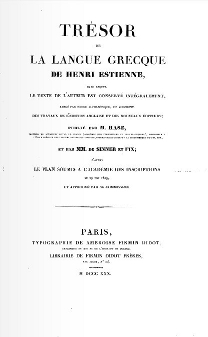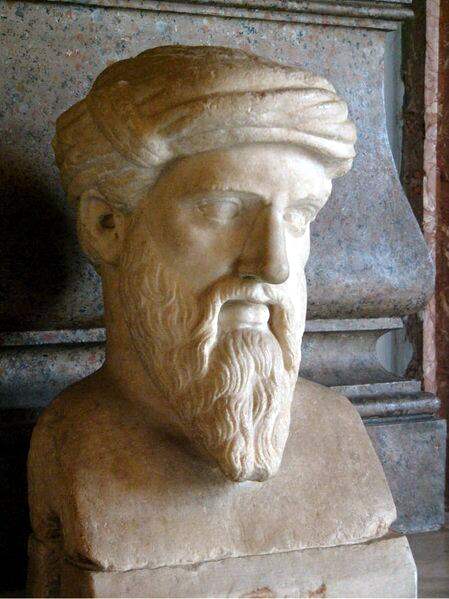|
On Justice
''On Justice'' (; ) is a Socratic dialogue that was once thought to be the work of Plato. The attribution to Plato is now considered spurious In the short dialogue, Socrates Socrates (; ; – 399 BC) was a Ancient Greek philosophy, Greek philosopher from Classical Athens, Athens who is credited as the founder of Western philosophy and as among the first moral philosophers of the Ethics, ethical tradition ... discusses with a friend questions about what is just and unjust.John Madison Cooper, D. S. Hutchinson, (1997), ''Plato, Complete works'', p. 1687. Hackett Publishing. This work is not to be confused with Plato's Republic, whose alternate title in ancient times was also ''On Justice''. References External links ''On Justice''translated by George BurgesFree public domain audiobook version of ''On Justice''translated by George Burges * . Collection includes On Justice. George Burges, translator (1855). Dialogues of Plato Appendix Platonica {{phil ... [...More Info...] [...Related Items...] OR: [Wikipedia] [Google] [Baidu] |
Henri Estienne
Henri Estienne ( , ; 1528 or 15311598), also known as Henricus Stephanus ( ), was a French printer and classical scholar. He was the eldest son of Robert Estienne. He was instructed in Latin, Greek, and Hebrew by his father and would eventually take over the Estienne printing firm which his father owned in 1559 when his father died. His most well-known work was the ''Thesaurus graecae linguae'', which was printed in five volumes. The basis of Greek lexicology, no thesaurus would rival that of Estienne's for three hundred years. Among his many publications of Greek authors, his publications of Plato are the source of Stephanus pagination, which is still used to refer to Plato's works. Estienne was also responsible for the first printed Latin translation of the works of Sextus Empiricus in 1562, which scholars credit for the diffusion of Pyrrhonian skepticism in early modern Europe and its adoption by highly influential skeptical philosophers such as Michel de Montaigne. Estie ... [...More Info...] [...Related Items...] OR: [Wikipedia] [Google] [Baidu] |
A Digital Library Of Greek Literature''
A, or a, is the first letter and the first vowel letter of the Latin alphabet, used in the modern English alphabet, and others worldwide. Its name in English is '' a'' (pronounced ), plural ''aes''. It is similar in shape to the Ancient Greek letter alpha, from which it derives. The uppercase version consists of the two slanting sides of a triangle, crossed in the middle by a horizontal bar. The lowercase version is often written in one of two forms: the double-storey and single-storey . The latter is commonly used in handwriting and fonts based on it, especially fonts intended to be read by children, and is also found in italic type. In English, '' a'' is the indefinite article, with the alternative form ''an''. Name In English, the name of the letter is the ''long A'' sound, pronounced . Its name in most other languages matches the letter's pronunciation in open syllables. History The earliest known ancestor of A is ''aleph''—the first letter of the Phoenician ... [...More Info...] [...Related Items...] OR: [Wikipedia] [Google] [Baidu] |
Socratic Dialogue
Socratic dialogue () is a genre of literary prose developed in Greece at the turn of the fourth century BC. The earliest ones are preserved in the works of Plato and Xenophon and all involve Socrates as the protagonist. These dialogues, and subsequent ones in the genre, present a discussion of moral and philosophical problems between two or more individuals illustrating the application of the Socratic method. The dialogues may be either dramatic or narrative. While Socrates is often the main participant, his presence in the dialogue is not essential to the genre. Platonic dialogues Most of the Socratic dialogues referred to today are those of Plato. Platonic dialogues defined the literary genre subsequent philosophers used. Plato wrote approximately 35 dialogues, in most of which Socrates is the main character. The protagonist of each dialogue, both in Plato's and Xenophon's work, usually is Socrates who by means of a kind of interrogation tries to find out more about the other ... [...More Info...] [...Related Items...] OR: [Wikipedia] [Google] [Baidu] |
Plato
Plato ( ; Greek language, Greek: , ; born BC, died 348/347 BC) was an ancient Greek philosopher of the Classical Greece, Classical period who is considered a foundational thinker in Western philosophy and an innovator of the written dialogue and dialectic forms. He influenced all the major areas of theoretical philosophy and practical philosophy, and was the founder of the Platonic Academy, a philosophical school in History of Athens, Athens where Plato taught the doctrines that would later become known as Platonism. Plato's most famous contribution is the theory of forms, theory of forms (or ideas), which aims to solve what is now known as the problem of universals. He was influenced by the pre-Socratic thinkers Pythagoras, Heraclitus, and Parmenides, although much of what is known about them is derived from Plato himself. Along with his teacher Socrates, and his student Aristotle, Plato is a central figure in the history of Western philosophy. Plato's complete ... [...More Info...] [...Related Items...] OR: [Wikipedia] [Google] [Baidu] |
Socrates
Socrates (; ; – 399 BC) was a Ancient Greek philosophy, Greek philosopher from Classical Athens, Athens who is credited as the founder of Western philosophy and as among the first moral philosophers of the Ethics, ethical tradition of thought. An enigmatic figure, Socrates authored no texts and is known mainly through the posthumous accounts of classical writers, particularly his students Plato and Xenophon. These accounts are written as dialogues, in which Socrates and his interlocutors examine a subject in the style of question and answer; they gave rise to the Socratic dialogue literary genre. Contradictory accounts of Socrates make a reconstruction of his philosophy nearly impossible, a situation known as the Socratic problem. Socrates was a polarizing figure in Athenian society. In 399 BC, he was accused of Asebeia, impiety and corrupting the youth. After Trial of Socrates, a trial that lasted a day, he was sentenced to death. He spent his last day in prison ... [...More Info...] [...Related Items...] OR: [Wikipedia] [Google] [Baidu] |
Republic (Plato)
The ''Republic'' (; ) is a Socratic dialogue authored by Plato around 375 BC, concerning justice (), the order and character of the just city-state, and the just man. It is Plato's best-known work, and one of the world's most influential works of philosophy and Political philosophy, political theory, both intellectually and historically. In the dialogue, Socrates discusses with various Classical Athens, Athenians and foreigners the meaning of justice and whether the just man is happier than the unjust man.In ancient times, the book was alternately titled ''On Justice'' (not to be confused with the spurious dialogue of the On Justice, same name). He considers the natures of existing regimes and then proposes a series of hypothetical cities in comparison, culminating in Kallipolis (), a utopian city-state ruled by a class of philosopher-kings. They also discuss ageing, love, theory of forms, the immortality of the soul, and the role of the philosopher and of poetry in soci ... [...More Info...] [...Related Items...] OR: [Wikipedia] [Google] [Baidu] |
George Burges
George Burges (; 1786 – 11 January 1864) was an English classical scholar who published translations of the works of Euripides, Aeschylus, Sophocles, and Plato. Biography Burges was born in Bengal, India, and was probably the son of Thomas Burges (d.1799) of Calcutta. He was educated at Charterhouse School and Trinity College, Cambridge, taking his B.A. degree in 1807 and obtaining one of the members' prizes both in 1808 and 1809 before becoming an M.A. in 1810. He stayed up at Cambridge and became a most successful coach and tutor. He had a great reputation as a Greek scholar, and was a somewhat acrimonious critic of rival scholars, especially Bishop Blomfield. Subsequently, he fell into embarrassed circumstances through injudicious speculation, and in 1841 a civil list pension of £100 per annum was bestowed upon him. He died at Ramsgate, on 11 January 1864. Burges was a man of great learning and industry, but too fond of introducing arbitrary emendations into the text of ... [...More Info...] [...Related Items...] OR: [Wikipedia] [Google] [Baidu] |
Dialogues Of Plato
Plato ( ; Greek: , ; born BC, died 348/347 BC) was an ancient Greek philosopher of the Classical period who is considered a foundational thinker in Western philosophy and an innovator of the written dialogue and dialectic forms. He influenced all the major areas of theoretical philosophy and practical philosophy, and was the founder of the Platonic Academy, a philosophical school in Athens where Plato taught the doctrines that would later become known as Platonism. Plato's most famous contribution is the theory of forms (or ideas), which aims to solve what is now known as the problem of universals. He was influenced by the pre-Socratic thinkers Pythagoras, Heraclitus, and Parmenides, although much of what is known about them is derived from Plato himself. Along with his teacher Socrates, and his student Aristotle, Plato is a central figure in the history of Western philosophy. Plato's complete works are believed to have survived for over 2,400 yearsunlike tha ... [...More Info...] [...Related Items...] OR: [Wikipedia] [Google] [Baidu] |




